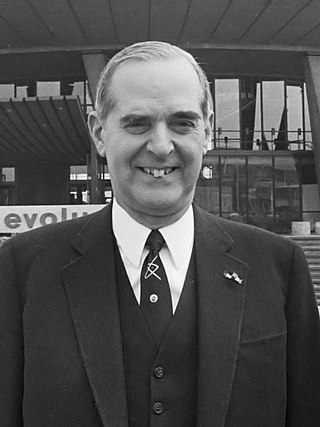Business ethics is a form of applied ethics or professional ethics, that examines ethical principles and moral or ethical problems that can arise in a business environment. It applies to all aspects of business conduct and is relevant to the conduct of individuals and entire organizations. These ethics originate from individuals, organizational statements or the legal system. These norms, values, ethical, and unethical practices are the principles that guide a business.
Ethics or moral philosophy is the philosophical study of moral phenomena. It investigates normative questions about what people ought to do or which behavior is morally right. It is usually divided into three major fields: normative ethics, applied ethics, and metaethics.
Ethical codes are adopted by organizations to assist members in understanding the difference between right and wrong and in applying that understanding to their decisions. An ethical code generally implies documents at three levels: codes of business ethics, codes of conduct for employees, and codes of professional practice.

Virtue ethics is an approach that treats virtue and character as the primary subjects of ethics, in contrast to other ethical systems that put consequences of voluntary acts, principles or rules of conduct, or obedience to divine authority in the primary role.

Applied philosophy is a branch of philosophy that studies philosophical problems of practical concern. The topic covers a broad spectrum of issues in environment, medicine, science, engineering, policy, law, politics, economics and education. The term was popularised in 1982 by the founding of the Society for Applied Philosophy by Brenda Almond, and its subsequent journal publication Journal of Applied Philosophy edited by Elizabeth Brake. Methods of applied philosophy are similar to other philosophical methods including questioning, dialectic, critical discussion, rational argument, systematic presentation, thought experiments and logical argumentation.

Initiatives of Change (IofC) is a global organisation dedicated to "building trust across the world's divides" of culture, nationality, belief, and background. Initiatives of Change was known as Moral Re-Armament (MRA) from 1938 to 2001, and the Oxford Group starting in 1929.
The philosophy of business considers the fundamental principles that underlie the formation and operation of a business enterprise; the nature and purpose of a business, and the moral obligations that pertain to it.
A code of conduct is a set of rules outlining the norms, rules, and responsibilities or proper practices of an individual party or an organization.

Philip Kotler is an American marketing author, consultant, and professor emeritus; the S. C. Johnson & Son Distinguished Professor of International Marketing at the Kellogg School of Management at Northwestern University (1962–2018). He is known for popularizing the definition of marketing mix. He is the author of over 80 books, including Marketing Management, Principles of Marketing, Kotler on Marketing, Marketing Insights from A to Z, Marketing 4.0, Marketing Places, Marketing of Nations, Chaotics, Market Your Way to Growth, Winning Global Markets, Strategic Marketing for Health Care Organizations, Social Marketing, Social Media Marketing, My Adventures in Marketing, Up and Out of Poverty, and Winning at Innovation. Kotler describes strategic marketing as serving as "the link between society's needs and its pattern of industrial response."

Frederik Jacques "Frits" Philips was the fourth chairman of the board of directors of the Dutch electronics company Philips, which his uncle and father founded. For his actions in saving 382 Jews during the Nazi Occupation of the Netherlands in World War II, he was recognized in 1996 by Yad Vashem as a Righteous Among the Nations.
Secular ethics is a branch of moral philosophy in which ethics is based solely on human faculties such as logic, empathy, reason or moral intuition, and not derived from belief in supernatural revelation or guidance—a source of ethics in many religions. Secular ethics refers to any ethical system that does not draw on the supernatural, and includes humanism, secularism and freethinking. A classical example of literature on secular ethics is the Kural text, authored by the ancient Indian philosopher Valluvar.

The Committee on Publication Ethics (COPE) is a nonprofit organization whose stated mission is to define best practice in the ethics of scholarly publishing and to assist editors and publishers to achieve this.
Accounting ethics is primarily a field of applied ethics and is part of business ethics and human ethics, the study of moral values and judgments as they apply to accountancy. It is an example of professional ethics. Accounting was introduced by Luca Pacioli, and later expanded by government groups, professional organizations, and independent companies. Ethics are taught in accounting courses at higher education institutions as well as by companies training accountants and auditors.

The Friedman doctrine, also called shareholder theory, is a normative theory of business ethics advanced by economist Milton Friedman which holds that the social responsibility of business is to increase its profits. This shareholder primacy approach views shareholders as the economic engine of the organization and the only group to which the firm is socially responsible. As such, the goal of the firm is to increase its profits and maximize returns to shareholders. Friedman argues that the shareholders can then decide for themselves what social initiatives to take part in, rather than have an executive whom the shareholders appointed explicitly for business purposes decide such matters for them.
The Institute for Business and Professional Ethics (IBPE) is a business ethics research and development center within the Driehaus College of Business at DePaul University in Chicago, Illinois. It was founded in 1985 in a joint effort between DePaul University's College of Liberal Arts & Social Sciences and Driehaus College of Business to encourage ethical deliberation in decision-makers by stirring their moral conscience, encouraging moral imagination, and stimulating research into business innovation and practices. IBPE programming serves as a forum for exploring and fostering ethical practices by the business community as well as for DePaul students and faculty. The IBPE publishes case studies, books, and journal articles in business ethics, and hosts a series of annual business workshops, conferences and events. It is also the editorial home of the Business and Professional Ethics Journal.
Behavioral ethics is a field of social scientific research that seeks to understand how individuals behave when confronted with ethical dilemmas. It refers to behavior that is judged within the context of social situations and compared to generally accepted behavioral norms.
Scott Bothic Rae is an American Old Testament scholar, theologian, and professor of Christian ethics. He serves as dean of the faculty and chair of the department of philosophy at Biola University's Talbot School of Theology. In 2014, Rae was elected to serve a term as president of the Evangelical Theological Society. He is a senior fellow for The Center for Bioethics & Human Dignity.

John C. Knapp is an American academic administrator serving as the 13th president of Washington & Jefferson College in Washington, Pennsylvania. Previously, he served as 12th president of Hope College, a private Christian liberal arts college located in Holland, Michigan.

The Caux Palace Hotel is a former palace hotel located in the village of Caux, in the city of Montreux in the Vaud canton, in Switzerland.
Archimedes "Archie" Francisco Trajano (1956–1977) was a Filipino student activist during the 1972–1986 martial law regime in the Philippines. His death in 1977 has been linked to Imee Marcos, the daughter of the Philippine dictator Ferdinand Marcos, who was President at the time.








